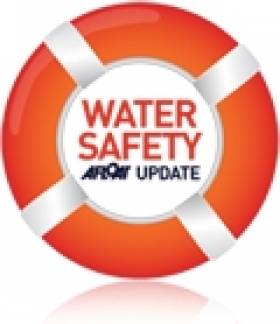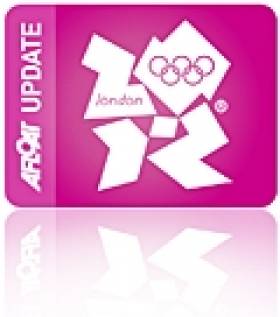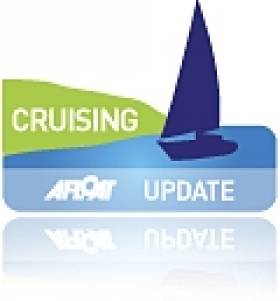Displaying items by tag: Yachts
Nine out of 10 Distress Alerts in US 'Have No Location Info'
The US Coast Guard has shown concern at the number of distress calls made from yachts that do not include GPS position information to aid rescuers in their location.
Already in the US, all newly installed VHF radios are required to have digital selective calling, which transmits distress calls to search and rescue services with the yacht's MMSI (Maritime Mobile Service Identity), a unique identifier for the yacht that includes its name, home port and owner's name. The new units are also connectable to onboard GPS systems.
But most yacht owners do not connect their radios to GPS, it's argued, and many have not registered their MMSI.
Sail World reports comments from US Coast Guard Rear Admiral RE Day, who said: "Of the roughly 100 digital selective calling distress alerts we are now receiving each month, about nine out of 10 do not have position information."
He added: "There's little the Coast Guard can do after receiving a distress alert with no position information, using an unregistered MMSI and having no follow-up voice communications."
Afloat.ie asks: Are yacht owners in Ireland more safety conscious than their US counterparts? Or do we need to take more care to provide the right info to search and rescue services? Have your say in the comments below or at the Afloat.ie forum!
Superyacht Fleet Expected to Visit London Olympics then Ireland
London is expected to provide a great SuperYacht venue for the Olympics and the hope is that some of the massive visitors may in turn continue cruising in Ireland according to www.YachtsLondon.com who are providing services to help yachts arrange to visit in 2012.
There are only a handful of capital cities that can accommodate SuperYachts in their hearts and London is one of these with its iconic river views of Tower Bridge, Greenwich, the O2 Dome and the Canary Wharf financial district.
A legacy of London's place at the centre of world trade in the past are its remaining docks which will provide high quality stern-to mooring for 50-100 large yachts as demand warrants. Canary Wharf will be the centre of this with added space in the Royal Docks next to City Airport. Yachts up to 200m LOA and 30m beam can be accommodated.
Hugh Agnew, one of the principals of YachtsLondon said that "many parties will be involved including dock owners, landowners, pier operators, PLA, MCA, security and suppliers. We can help with all of these, but the key at the moment is early decisions so that sufficient dock space is put in place for 2012."
As well as the Olympic Games there are many other events in the UK in 2012 including Superyacht Cup, J Class regattas, Westward Cup so if there was ever a year to plan to make UK the destination then 2012 will be it with the possibility to link to cruising in Ireland, Scotland and Scandinavia.
Cruising Association's MedNet Goes Global
The Cruising Association has just launched a new internet and email based net, which lets members cruising various regions of the world arrange meets, ask questions and receive answers about ever-changing local facilities and regulations.
It all started in 2000 as Mednet, a service for some 85 members cruising yachts and motorboats in the Mediterranean. MedNet 1 allowed one-to-one email communication but soon members wanted more, especially the ability to see the answers to other members' questions.
So MedNet 2 was born in Spring 2001, providing wider access to conversations. By Autumn 2003 MedNet 2 had moved to Yahoo Groups, but as membership increased mail traffic became too heavy for slow and expensive internet connections on boats. As a consequence MedNetLite was introduced for those with low bandwidth connections. By now 250 users were exchanging news about lay-up sites, marinas, restaurants, anchorages, provisioning, boatyards, itineraries and regulatory changes. But a good long-term record of all this data was missing.
So MedNet 3 was introduced in 2006, working as an email based forum within MyCA, the Cruising Association members-only intranet. There were still shortcomings. The system was passive, collecting e-mails and displaying them online. Inputs were only by email. By now, users had grown to 350, 10% of the Cruising Association's membership. Members cruising in other regions began asking for their own networks.
The time had come to upgrade so Version 4 was developed by a group of Cruising Association members with IT skills. This has just been launched for four regions; Mediterranean, Baltic, European Inland Waterways and 'Blue Water'. Members can join as many as they wish. They post and respond online, or by email. They can receive full or lite email messages or opt for no email, just tuning in online when they have Internet access. A full record of all these discussions is maintained online, making it easy to research topics and keep the Cruising Association's many members-only publications right up-to-date.
On MedNet recent discussions have included:
• The need for grey water holding tanks in Turkey
• The cheapest way of making cash withdrawals
• Marina costs in western Italy
• Recommendations for a rigger in Preveza
• How to watch British TV in the Med
• Places for winter storage ashore
It will be interesting to see the sorts of topics that the wider use of MedNet technology brings!































































